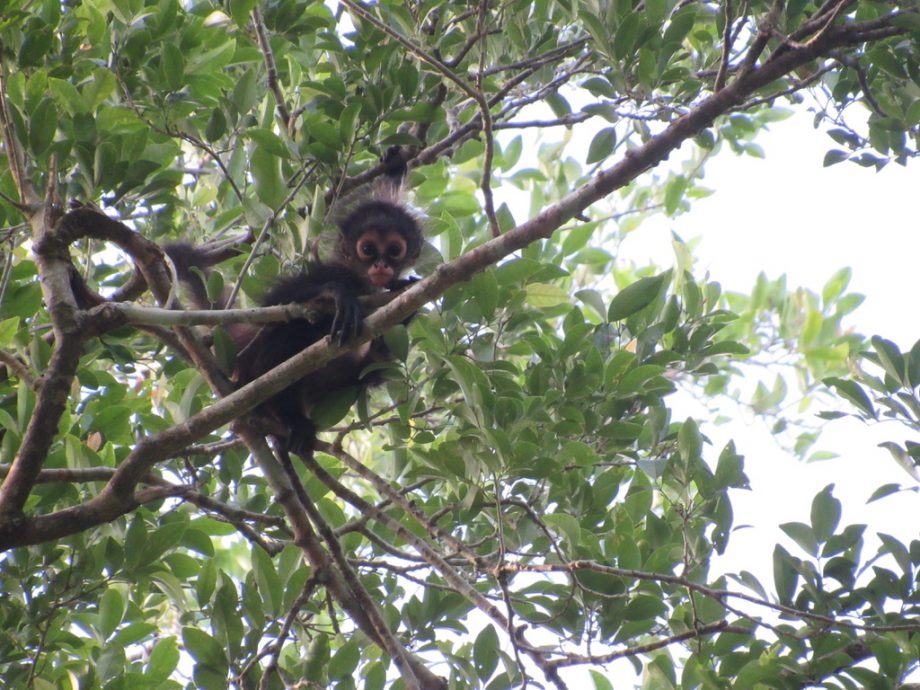The British Science Association has today released survey results to coincide with the start of British Science Week (6-15 March 2020), which show that while documentaries like Blue Planet are putting environmental issues front of mind, many of us are still confused about how we can make a positive impact, with almost 2 in 5 of the survey respondents unsure where to start when it comes to living more sustainably.
One of the ways that the public can take action and help tackle deforestation and habitat loss is by tagging drone footage of endangered and vulnerable spider monkeys in Central America for the ‘Spotting Spider Monkeys’ project.
Download more information on the ‘Spotting Spider Monkeys’ project.
The tags will train an AI algorithm to find and track spider monkeys on its own, saving researchers hundreds of hours of time – and saving vulnerable animals from extinction.

The project will not only raise awareness of the impact deforestation and poor sustainability has on the planet, but we hope that by taking part in the project and being involved in British Science Week, it will also raise awareness of the choices we can all make to live a more sustainable life.
WWF says that palm oil is in close to 50% of the packaged products we find in supermarkets, from food to cosmetics. When grown unsustainably, palm oil production is a major driver of deforestation and habitat loss.
The goal of the ‘Spotting Spider Monkeys’ project, which is led by Dr Claire Burke who has a PhD in astrophysics, is to train an AI algorithm to spot and monitor spider monkey populations without the need for human intervention. Spider monkeys are a great proxy for determining the health and biodiversity in the forest, but with their declining numbers, action needs to be taken soon to help save the species. Dr Burke applies drone and remote sensing technology to methods developed in astrophysics, climate and atmospheric science, computer science, and engineering to tackle major global challenges such as poaching.
Dr Claire Burke, lead researcher for Spotting Spider Monkeys says:
“With the black spider monkey population estimated to have fallen by 30% in the last 45 years, primarily due to habitat loss, this is vital work. If we could halt this decline, and perhaps even reverse it in some places, this would mean we were not only protecting the future of the spider monkeys, but also of these vital forest habitats. It’s clear that the message about sustainability is starting to get heard, and I’m encouraged to see that 14% of people are investing in products made with sustainable oil, but there is still lots more that we can do. It’s important to understand that I’m not advocating a boycott of palm oil entirely as this would only lead to a negative impact on biodiversity elsewhere, but that by making better choices we can all thrive on this planet. We really want to see the public’s passion drive them to tag these spider monkeys during British Science Week – saving our team years of research time.”
Katherine Mathieson, Chief Executive at the British Science Association says:
“The whole nation can get involved in this year’s British Science Week and know they’re making a difference to a global issue that can otherwise seem tricky to tackle. We’re excited to see an army of sofa scientists jump at the opportunity to save and protect spider monkeys on the other side of the world. We encourage everyone to get involved to help us advance this exciting, ingenious technology.”
Mike Barrett, Executive Director of Science and Conservation, at WWF says:
“It’s clear that our planet is under threat like never before and while this survey may indicate that a majority of people believe environmental sustainability is high on the agenda, many are still unaware of the scale of this challenge or what to do. But there is still time. We are the first generation to know we are destroying the world, and the last that can do anything about it.
“We know what the threats are, and that participating in crowdsourced science, making small changes in your lifestyle or calling on your local MP to act and protect nature, can all help reverse damage and restore our planet.”